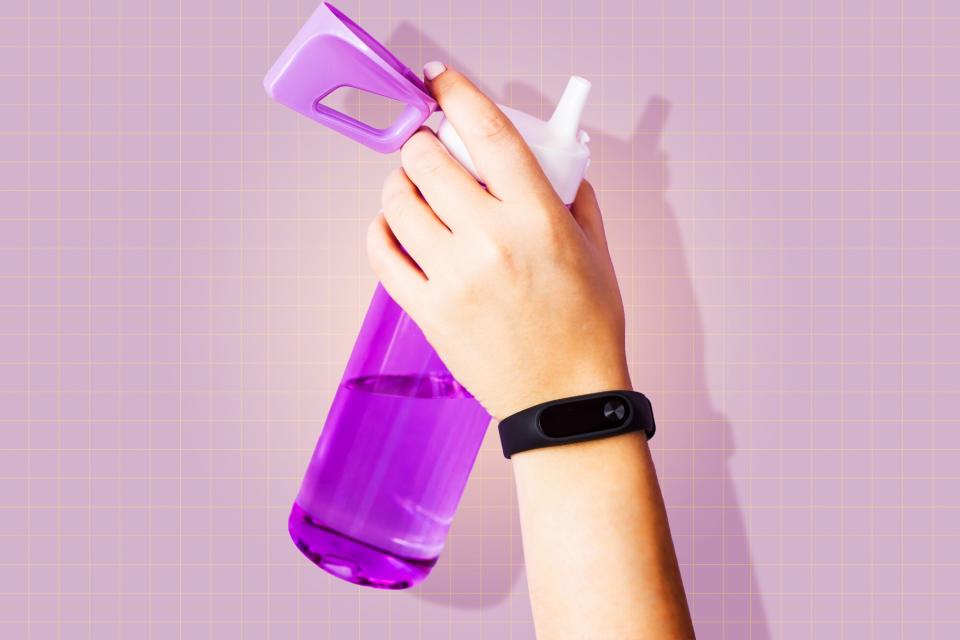Why Drinking Water All Day Long Is Not the Best Way to Stay Hydrated
Staying hydrated is one of the best things you can do for your health. It can help with everything from healthy heart function and skin elasticity to making you happier and more productive. However, most Americans don't drink enough water, which can lead to chronic dehydration. Dehydration comes with a slew of nasty side effects like mental fog, overeating and even higher stroke risk.
There are many healthy ways to stay hydrated. You can carry a reusable water bottle with you to sip throughout the day, or nosh on hydrating foods like watermelon, tomatoes and beans (most raw fruits and vegetables have a high water content). That said, more water isn't necessarily better. Chugging as much water as you can all day is likely not the best or most efficient way to stay hydrated, and it's technically possible to overdo it.
There is such a thing as overhydration that causes some unwanted and potentially dangerous side effects. Overhydrating can result in what's called hyponatremia, where you retain water but flush out necessary electrolytes like sodium and potassium. This causes cells all over the body to swell and can lead to nausea, vomiting, dizziness and, in rare cases, even death. Endurance athletes such as marathon runners or triathletes are at a higher risk of hyponatremia during competition, as it is common to take in large quantities of water while losing sodium and potassium through sweating.
Related: 4 Signs You're Drinking Too Much Water

Getty Images / Valeriia Sviridova / EyeEm
Does this mean you should avoid drinking water to avoid overhydration? No. But it does mean that you may want to be mindful of electrolytes and include other forms of hydration throughout the day. One 2015 study published in The American Journal of Clinical Nutrition, found that other drinks might be more hydrating than water alone in the short term. They found that milk, tea and orange juice were slightly more hydrating, while beer was slightly (but not significantly) less hydrating. The reason for this could be due to the role of the electrolytes sodium, calcium, potassium, chloride, phosphate and magnesium. These electrolytes are minerals in the body with a variety of functions, one of which is fluid balance. Plain water does not contain electrolytes, but foods and other drinks oftentimes do. That's why it's important to make sure you include food or drink sources of these minerals along with plenty of water to stay balanced throughout the day.
In summary, water is still super important for hydration, and most of us should be more concerned about dehydration than overhydration. But it's important to mix in electrolytes from foods or drinks throughout the day, especially if you are exercising at a high intensity. When it comes to drinking water, slow and consistent wins the race.

